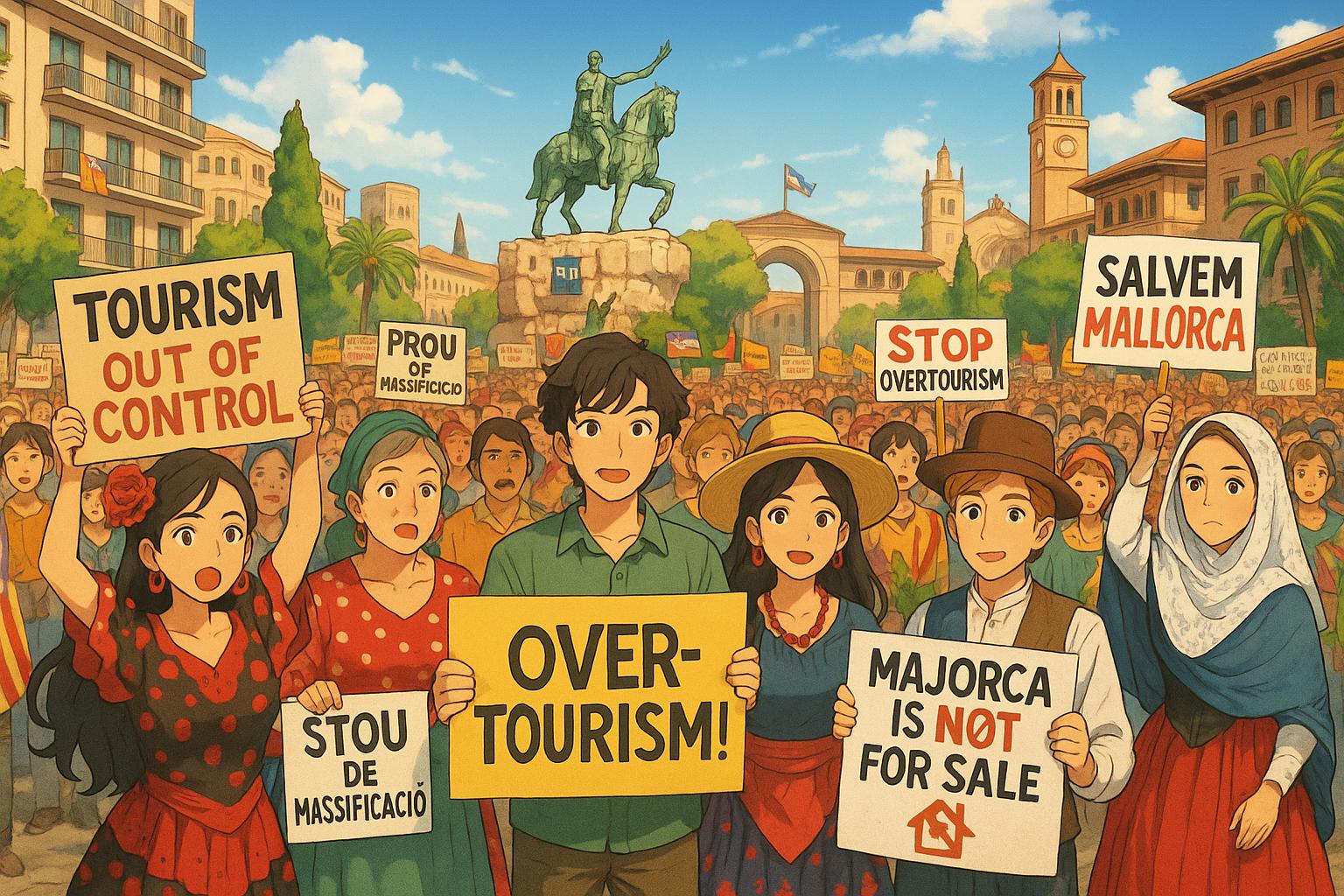UK tourists heading to Majorca are facing significant protests against overtourism, scheduled to take place soon. On Sunday, June 15, locals alongside residents from other popular Spanish holiday destinations—including Ibiza, Menorca, and Tenerife—plan to march in Palma’s Plaça Espanya at 6 pm. The demonstrations are organised by the Southern Europe Network Against Touristification, which has raised concerns over the detrimental effects heightened tourism poses on local communities, including overcrowded streets, housing shortages, and severe ecological impacts.
Attendees will join forces with various groups, trade unions, and environmental organisations, with an estimated attendance of around 10,000 people expected based on previous years’ turnouts. Organisers have asserted that while their aim is not to vilify tourism, it is vital to ensure that tourism does not erode the cultural identity of the local populace. This event follows previous successful protests, notably one held last year by the Menys Turisme Més Vida (Less Tourism, More Life) coalition, which highlighted the urgent need for sustainable solutions to the current issues plaguing the tourism sector.
Menys Turisme Més Vida has vocally opposed the Balearic government's new tourist campaign and extravagant investments that seemingly prioritise luxury tourism and property speculation over the pressing housing crisis faced by locals. A statement released by the group expressed frustration over the lack of effective policies to manage tourism better, citing the negative impact of increased tourist volumes on local life.
As Spain grapples with its status as the second-most visited country in the world, it has witnessed a surge in anti-tourism protests recently. Major cities, including Barcelona, have seen similar demonstrations highlighting the struggle against unmanageable tourist influxes, which have been linked to rising living costs and environmental degradation. A protest in Barcelona last year involved protesters playfully squiring water at tourists, raising awareness of growing local displeasure.
Reports indicate that the wider backlash against mass tourism in Spain is a response to the economic and societal pressures that have intensified as visitor numbers continue to swell. While tourism typically contributes significantly to the national economy, accounting for approximately 12-13% of Spain's GDP, many community voices are clamouring for a reassessment of tourism strategies that prioritise the well-being of residents alongside economic interests.
Organisers of the upcoming protests have called for specific measures to limit tourism in most impacted areas such as Sóller, Artà, and Palma. They argue that without intervention, the distinctive character and quality of life in these locales could be irreparably harmed, a sentiment echoed through their social media outreach. "Of course, we want you to come, but not at the cost of our identity," a representative noted in a recent post.
Tourists visiting Majorca during this period are advised to remain mindful of the protests, which aim to shed light on the real challenges faced by residents in tourist-heavy zones. Ultimately, the demonstrators seek a balanced approach to tourism that benefits all stakeholders, allowing both residents and visitors to enjoy the rich cultural heritage that the Balearic Islands have to offer without overwhelming its local communities.
📌 Reference Map:
- Paragraph 1 – [1], [2]
- Paragraph 2 – [1], [5]
- Paragraph 3 – [3], [4]
- Paragraph 4 – [6], [7]
- Paragraph 5 – [1], [2]
Source: Noah Wire Services
